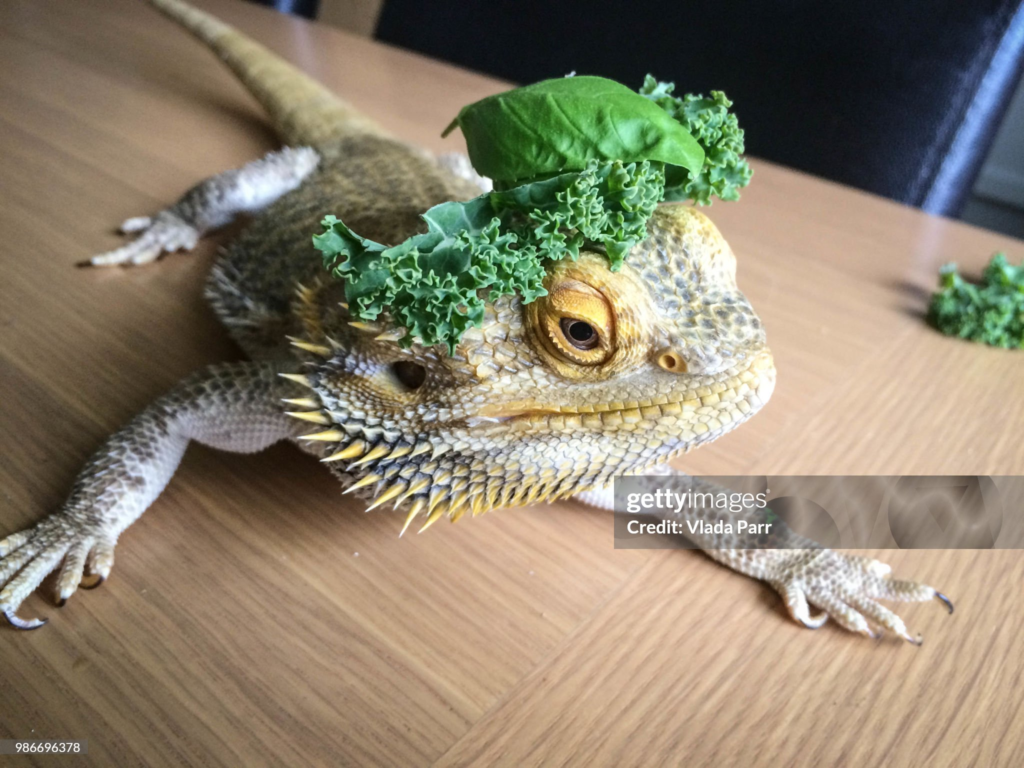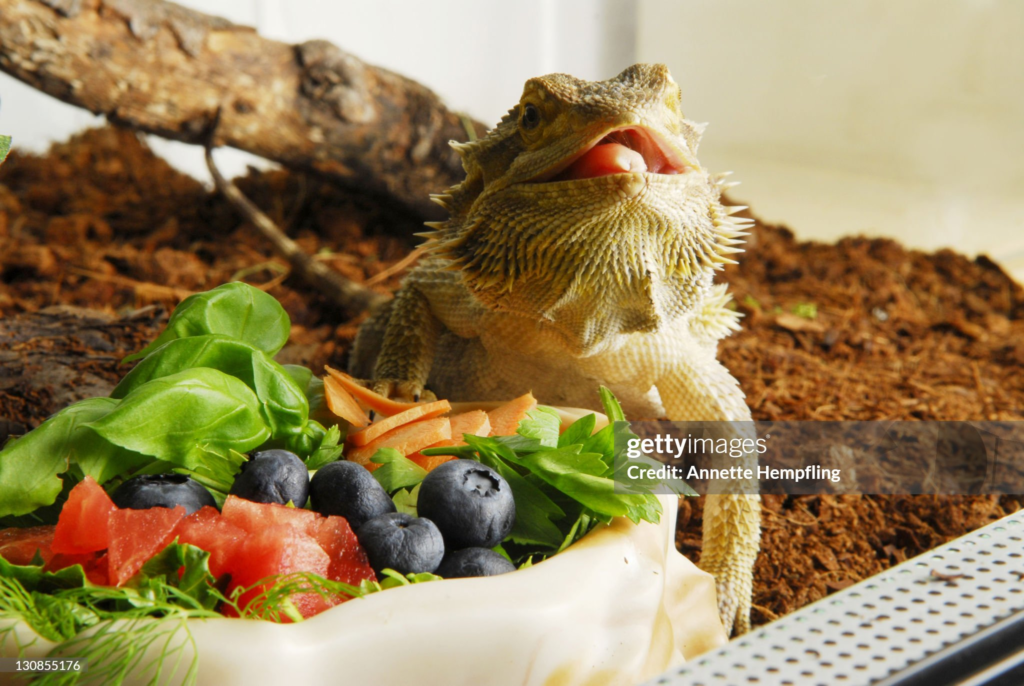
Getty images – Nevena1987
If you’re fascinated by bearded dragons and considering one as a scaly companion, understanding their diet is crucial to their health and happiness. These gentle reptiles have specific dietary needs that cater to their unique biology. Let’s dive into what makes a well-rounded meal for your bearded dragon and how you can keep them thriving.
Why Diet Matters for Bearded Dragons
Just like us, bearded dragons require a balanced diet to stay healthy and active. Proper nutrition supports their growth, maintains their immune system, and ensures they have the energy to explore their surroundings and interact with you.
What Bearded Dragons Eat

1. Insects: A Protein Powerhouse
Bearded dragons are insectivores, meaning insects are a primary part of their diet. Common insects include:
- Crickets: These crunchy critters are a favorite among bearded dragons. They provide essential protein and are readily available at pet stores.
- Mealworms: Another staple, mealworms are high in protein and can be offered as a treat or part of their regular diet.
- Dubia roaches: These roaches are nutritious and easier to digest compared to some other insects, making them a popular choice.
Feeding Tip: Offer insects that are smaller than the space between your bearded dragon’s eyes to prevent choking.
2. Leafy Greens: Essential Vitamins and Minerals

In addition to insects, leafy greens are essential for a balanced diet. Some favorites include:
- Collard Greens: Rich in calcium and vitamin A, collard greens are a nutritious staple.
- Mustard Greens: These greens are packed with vitamins and minerals, providing a variety in their diet.
- Dandelion Greens: A natural choice that offers vitamin C and calcium, aiding their overall health.
Feeding Tip: Rotate greens regularly to provide a variety of nutrients and prevent boredom.
3. Fruits and Vegetables: Nutritious Treats

While not a primary part of their diet, fruits and vegetables can be offered as occasional treats, including:
- Bell Peppers: A crunchy treat that provides vitamin C and antioxidants.
- Blueberries: Small and packed with vitamins, these make a sweet treat.
- Squash: Offers vitamins and fiber, promoting digestion and overall health.
Feeding Tip: Chop fruits and vegetables into bite-sized pieces to make them easier to eat.
Feeding Schedule and Supplements
- Feeding Schedule: Offer insects daily for younger dragons and every other day for adults. Greens should be offered daily, ensuring a balanced diet.
- Supplements: Dust insects with calcium powder and provide a multivitamin supplement twice a week to support their nutritional needs.
Tips for Feeding Your Bearded Dragon
- Hydration: Ensure a shallow water dish is available at all times, although bearded dragons mainly get hydration from their food.
- Monitor Their Weight: Regularly check their weight to ensure they’re maintaining a healthy balance of food and exercise.
- Variety Is Key: Introduce new foods gradually and provide a variety of insects and greens to keep their diet interesting and nutritious.
Conclusion
Understanding what bearded dragons eat is essential for their health and happiness. By providing a balanced diet of insects, leafy greens, and occasional treats, you can ensure they receive the nutrients they need to thrive. Remember, each dragon is unique, so observe their preferences and adjust their diet accordingly. With proper care and attention to their dietary needs, your bearded dragon will enjoy a long, healthy life as your scaly companion.
So, whether you’re preparing their next meal of crunchy crickets or nutritious collard greens, enjoy the journey of caring for your bearded dragon and watching them grow strong and vibrant in their habitat.
















